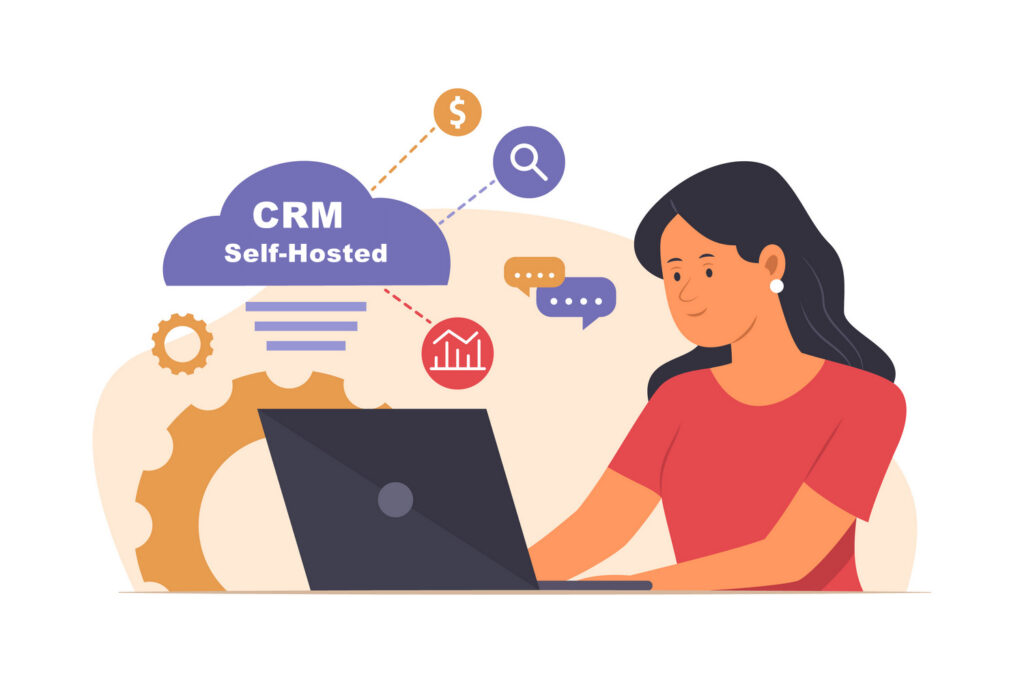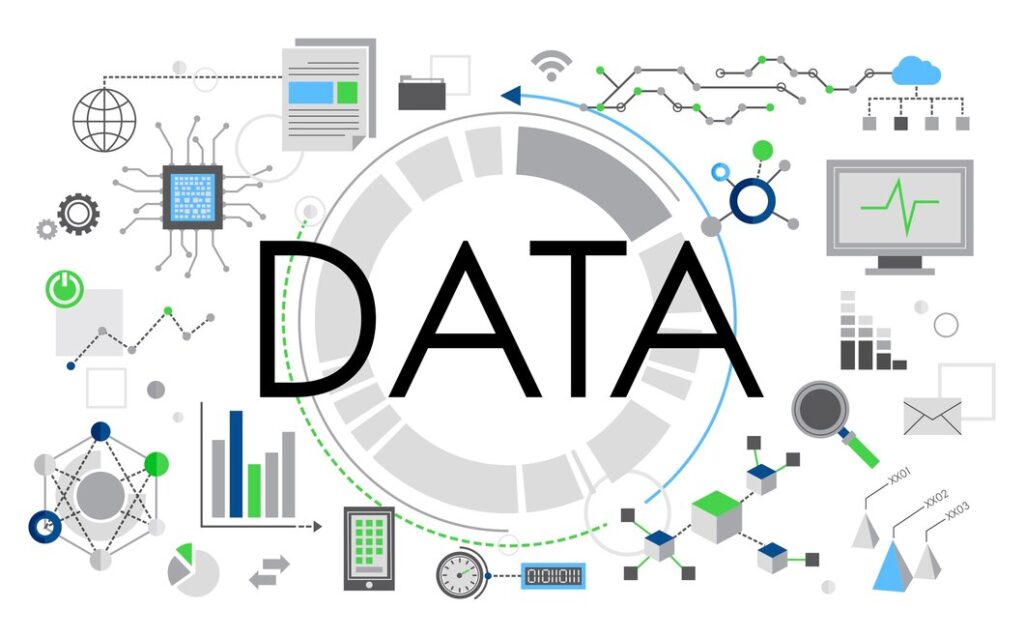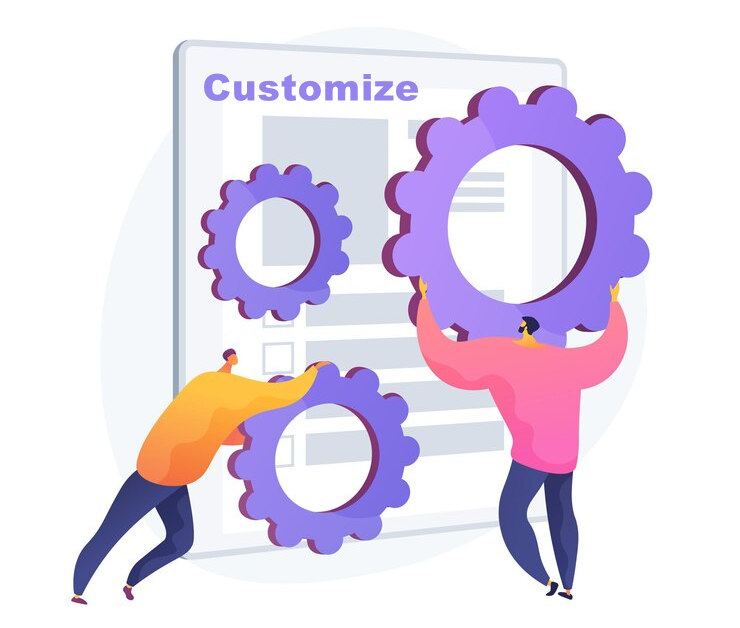
Managing customer relationships effectively has become a cornerstone of business success. Whether you’re a small business owner or a large enterprise, the ability to track, manage, and nurture client relationships is crucial. This is where Customer Relationship Management (CRM) systems come in. They provide a centralized platform to manage customer interactions, track sales, and streamline business operations.
While many businesses opt for cloud-based CRM solutions due to their ease of use and quick deployment, a growing number of companies are turning to self-hosted CRMs. The self-hosted model gives businesses full control over their CRM, from data ownership to customization options. In this article, we’ll dive deep into the benefits of self-hosted CRM systems and why they may be a better fit for your business than cloud-based alternatives.
1. Full Control Over Your Data: Security and Ownership
When using a cloud-based CRM, your data is stored on the provider’s servers, meaning you rely on an external entity for data security, privacy, and compliance. This can be concerning for businesses that manage sensitive client information or operate in industries with strict data protection regulations, such as healthcare or finance.
A self-hosted CRM eliminates these concerns by giving you full control over where your data is stored and how it is managed. With a self-hosted system, your customer data remains on your servers, under your protection. You can implement your own encryption protocols, regular backups, and stringent access controls to ensure that only authorized personnel can access sensitive information.

For example, Grow CRM, a self-hosted CRM solution, allows businesses to securely store their customer data in-house, ensuring complete ownership and control. For companies that handle large amounts of private data, this level of control is invaluable. It not only gives peace of mind but also ensures compliance with data privacy laws like the General Data Protection Regulation (GDPR).
2. Customization: Build a CRM That Fits Your Business
Every business operates differently, and no two companies have the same needs. One of the biggest advantages of a self-hosted CRM is the ability to customize it to your specific requirements. Cloud-based CRMs often limit customization due to their shared infrastructure, but a self-hosted CRM allows you to modify the software to fit your unique business processes.

For instance, with a self-hosted solution, you can adjust workflows, design custom reports, and tailor dashboards to suit your team’s needs. Need a specific feature? With access to the source code, you can build or integrate any functionality that enhances your business operations.
Many businesses using self-hosted CRMs appreciate having the freedom to customize user interfaces, form fields, and reporting tools. Grow CRM is a great example of a customizable CRM solution, offering features such as custom CSS, configurable invoices, and dynamic project management tools. This flexibility ensures that your CRM grows with your business, adapting to new processes or strategies as they evolve.
3. Cost Efficiency: Reduce Long-Term Expenses
One of the often-overlooked benefits of a self-hosted CRM is its long-term cost efficiency. While cloud-based CRMs typically operate on a subscription model with monthly or annual fees, self-hosted usually involve a one-time purchase or a lower ongoing licensing fee. Over time, this can result in significant savings, especially as your business and team grow.
For smaller businesses or startups, these ongoing subscription fees can become a financial burden. A self-hosted CRM, on the other hand, allows you to avoid these recurring costs. You pay for the software once, and from that point forward, you only incur the costs associated with maintaining your own server or IT infrastructure.
Additionally, if you’re managing a large team, a self-hosted platform becomes more cost-effective as you add more users. You’re not locked into tiered pricing structures based on the number of employees, which is a common model in cloud-based CRMs. For businesses scaling their operations, the cost savings of a self-hosted CRM like Grow CRM can add up quickly.
4. Customization of Data Privacy Settings
Data privacy is one of the most pressing concerns for modern businesses, particularly with global data protection laws tightening in recent years. Self-hosted CRMs provide a level of flexibility and privacy that cloud-based solutions cannot. With a self-hosted CRM, you can ensure that all data remains within your control, on servers that you manage.
This also means you can implement your own privacy policies and ensure compliance with regional regulations. For example, if your business operates in the European Union, compliance with GDPR is critical. By hosting the CRM yourself, you can take full responsibility for adhering to local data protection laws. Furthermore, you can customize privacy settings to suit different regions or industries, which may have their own specific regulations regarding data handling.

5. Offline Access and Stability
Many businesses operate in areas with inconsistent internet connections or simply cannot afford downtime caused by server outages on cloud-based platforms. A self-hosted CRM offers the benefit of offline access and the assurance that your system remains functional even if the internet goes down.
If your CRM is hosted on your internal server, your employees can continue to work without interruption, even during internet outages. This is a significant advantage for businesses that rely heavily on their CRM for day-to-day operations, such as managing sales, client communications, or support ticketing.
For instance, Grow CRM offers a full-featured calendar that integrates project timelines, tasks, and events into one cohesive platform. Whether you’re online or offline, you can access critical project details and tasks without losing productivity.
6. Greater Performance Control
Cloud-based CRM systems are hosted on shared infrastructure, meaning your CRM’s performance may be affected by the activities of other businesses sharing the same server. With a self-hosted CRM, you don’t have to worry about bandwidth limits or slow response times due to other users.
You have full control over the server specifications, which means you can scale up resources as your business grows. Need more storage or faster processing speeds? Simply upgrade your server. This ensures that your CRM always runs smoothly, even as your data and user base increase.
Grow CRM, for example, allows businesses to scale their performance as needed. Whether you’re managing large projects or simply handling more clients, you can adjust your server settings to meet your performance needs, ensuring that your CRM operates at peak efficiency.
7. Automation Features: Streamlining Business Processes
A good CRM system does more than store customer data. It should help automate and streamline your business processes, saving time and reducing human error. Many self-hosted CRMs offer advanced automation features that allow you to automate tasks such as lead assignment, invoicing, and follow-up reminders.
Automating these routine tasks not only saves time but also ensures consistency in customer service and operational efficiency. For example, you can set up triggers that automatically send follow-up emails when a lead has not been contacted for a certain period. You can also automate invoicing, ensuring that clients receive their bills on time without manual input from your team.
8. Support for Business Growth
One of the challenges of cloud-based CRMs is the risk of outgrowing the platform. Many small and mid-sized businesses start with a cloud-based CRM, only to find that it doesn’t scale well as they expand. Self-hosted CRMs, by contrast, are designed to grow with your business.
Whether you’re adding more users, increasing storage space, or expanding your CRM’s features, a self-hosted CRM allows you to scale without the limitations of a shared environment. For businesses looking to expand into new regions, industries, or markets, a self-hosted CRM offers the flexibility and scalability necessary to keep pace with growth.
Is a Self-Hosted CRM Right for You?
A self-hosted CRM provides unmatched control, customization, and scalability for businesses looking to manage their customer relationships efficiently. By offering full data ownership, advanced customization options, and cost-effective scalability, self-hosted CRMs are ideal for companies of all sizes.
If you’re looking for a CRM that gives you complete control over your data, allows you to tailor features to your unique needs, and provides long-term savings, a self-hosted solution like Grow CRM is worth exploring. Whether you’re a small business or a large enterprise, investing in a self-hosted CRM can position you for long-term growth and success.


